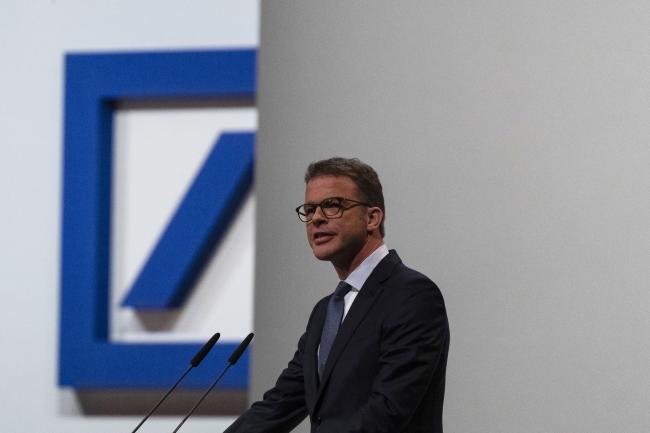(Bloomberg) -- Deutsche Bank AG (DE:DBKGn) Chief Executive Officer Christian Sewing warned that more monetary easing by the European Central Bank, as widely expected next week, will have “grave side effects” for a region that has already lived with negative interest rates for half a decade.
Few economists believe another cut at this level would actually help the economy, and clients are telling the bank they won’t invest a single euro more just because rates go 10 basis points lower, Sewing said at a conference in Frankfurt. All it would achieve is to further divide society by lifting asset prices while punishing Europe’s savers who are already paying 160 billion euros ($176 billion) a year because of negative interest rates, he said.
“In the long run, negative rates ruin the financial system,” the CEO said at the event, organized by the Handelsblatt newspaper. Another cut “may make refinancing cheaper for states, but has grave side effects.”
The comments are Sewing’s most vocal criticism yet of a monetary policy that has left Europe’s banks in general -- and Deutsche Bank (DE:DBKGn) in particular -- struggling to compete with Wall Street firms, by eroding revenue from lending and burdening them with billions of euros in penalties for parking cash with the central bank. Sewing in July announced radical cuts to his firm, including the loss of 18,000 jobs, after years of revenue contraction and low profitability pushed the shares to a record low.
The ECB will decide next week if it will cut its interest rates even further as a slew of economic indicators have recently showed a decelerating economy. Many banks have said they oppose further cuts and want any such move to be tempered with exemptions, a process known as tiering.
“What’s really worrisome: central banks have hardly any tools left to effectively mitigate a real economic crisis,” Sewing said. “They have already cranked open the money tap -- most of all the European Central Bank.”
Sewing said his bank had asked 285 corporate clients about the impact of another rate cut by the ECB.

